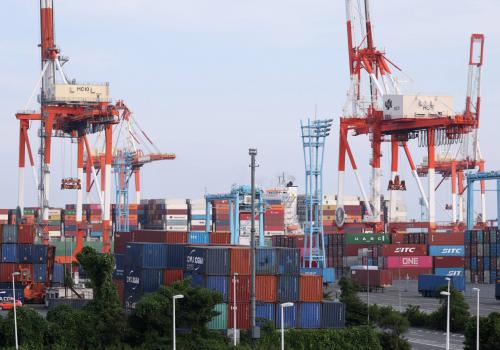Japan’s current account surplus shrank to its smallest amount on record for the month of August, Finance Ministry data showed Tuesday, with surging prices of energy imports outstripping price rises in exports. The current account surplus plunged 96.1% from a year earlier to ¥58.9 billion ($404 million) in August. “What’s happening now is a shift of income from commodity-importing nations such as Japan toward commodity-exporters,” said Masamichi Adachi, chief economist at UBS Securities. “I think the current account surplus will narrow as trade deficits persist, eroding Japan’s purchasing power and making it poorer.” The sharp drop in the balance, one of the widest gauges of international trade, came despite record overseas investment income. The country’s trade deficit stood at ¥2.49 trillion after imports totaled ¥10.55 trillion and exports ¥8.06 trillion. Imports of energy sources, ranging from crude oil to coal and liquefied natural gas, made up a significant portion of Japan’s imports in value terms. Russia’s war in Ukraine has exposed the vulnerability of resource-poor Japan, which relies heavily on energy imports to meet its energy needs.
Magnified by the impact of the yen’s sharp drop against the U.S. dollar, higher import costs have been threatening to cool consumer sentiment and darken the economic outlook. The current account surplus has long been regarded as a sign of export might and source of confidence in the safe-harbor yen, yet recent years have seen the account occasionally swing to deficit on a monthly basis. While the cost of imports rise as the yen weakens, the attendant boost to exports that become cheaper to foreign buyers has not been as great due to firms shifting production abroad — a consequence of a previously strong yen making exports pricey. Japan offsets trade deficits with returns from a growing number of overseas investments — its primary income balance clocked a record ¥3.327 trillion in August, helped by a weak yen. But a worsening balance of payments highlights structural economic change and runs against Japan’s trade powerhouse image.
